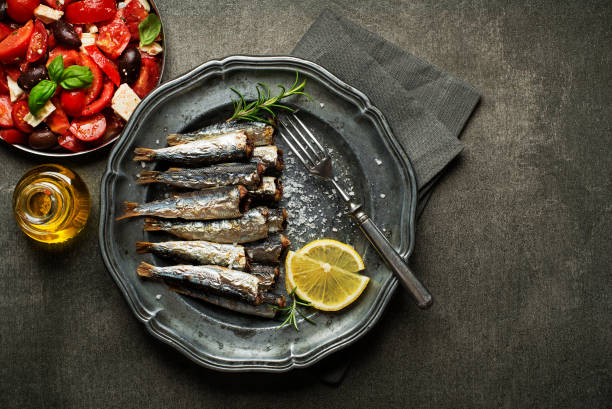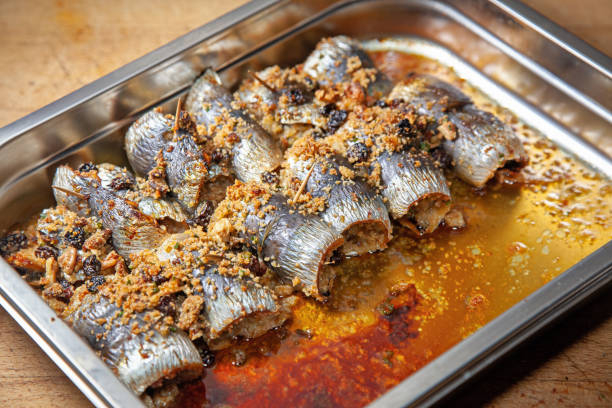Baked sardines
Greek and Mediterranean cuisines rely heavily on fish. Numerous health advantages, including a lower risk of heart disease, have been frequently linked to high intakes of fish, particularly fatty fish. One of the most popular fish dishes in Greece is sardines. These little, fatty fish are one of the healthiest things you can consume in addition to being delectable. They actually provide a lot of EPA and DHA. These particular omega-3 fatty acid types have been associated with a number of positive health effects. In actuality, 473 mg of EPA and 509 mg of DHA are present in 3.5 ounces (100 grams) of sardines.
DHA is essential for maintaining brain health. It not only supports healthy brain aging but also healthy brain growth in newborns. In addition to healthy fats, 3.5 ounces (100 grams) provide the following:
- Protein: 25 grams
- Vitamin B12: 8.94 mcg (373% of the DV)
- Selenium: 5.3 mcg (96% of the DV)
- Vitamin D: 4.8 mcg (24% of the DV)
- Calcium: 29.4 mg (29% of the DV)
Due to the high levels of protein, calcium, and vitamin D they contain, sardines are also beneficial for your bones. Even though there are several ways to consume them, they are frequently baked with olive oil, lemons, and spices.















